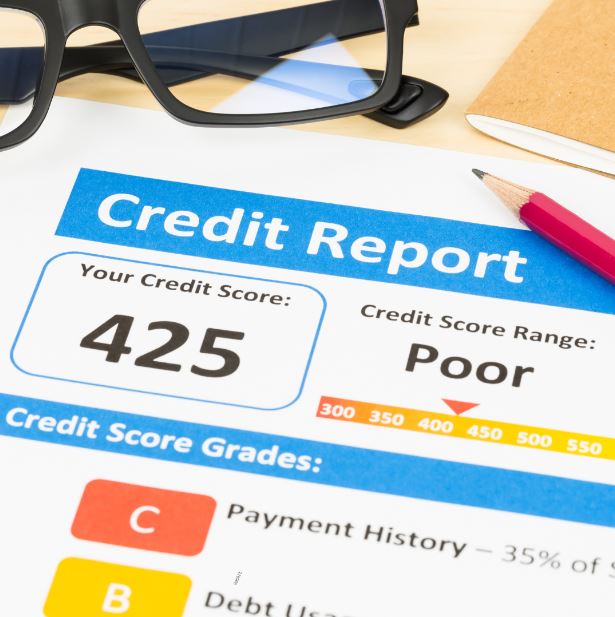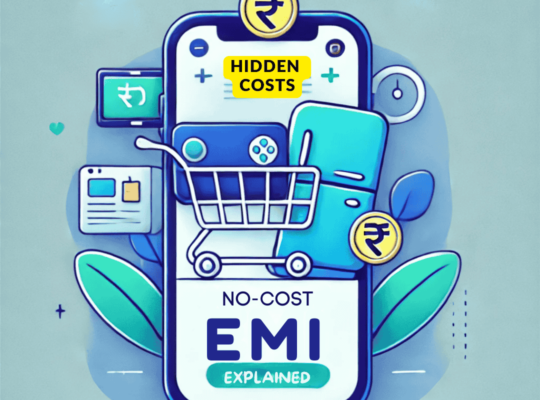
The number of non-performing assets in private sector banks’ portfolios of unsecured loans, which comprise personal loans and credit cards, has increased recently. In this blog-post, we will discuss some tips for those who are approaching default or are afraid that their credit score may drop as a result of missing loan payments.
Avoid over-leverage:
Over-leverage is the main source of stress for borrowers. It is desirable for an individual’s Equated Monthly Instalments (EMIs) to not surpass 30% of their net take-home pay. They won’t have enough money left over to cover necessities if their EMIs exceed 30% of their salary.
A lot of individuals are living beyond their means. Financial restraint has becoming less important as the YOLO (you only live once) mentality has gained popularity among current generation people. Borrowers are finding it challenging to make their EMI payments on time due to layoffs, particularly in the private sector and start-ups.
By approving loans without accurately determining repayment potential, lenders are also making mistakes. Online financing, buy-now-pay-later (BNPL) loans, and small personal loans are frequently approved quickly with little risk assessment, which results in a heavy debt load.
If you are about to default your loan payments:
As recovery from default takes time, if someone is on the verge of default, they need to take immediate action to prevent it. To begin, look over your credit card account to see how much you owe. Avoid late fines by paying more than the minimum amount due. Your credit card balance’s outstanding amount may have an interest rate of up to 40%.
Evaluate your earnings and expenses and reduce unnecessary spending. After that, think about refinancing your credit card debt. It might be advantageous to refinance into a longer-term, less expensive loan, such a personal loan, or into a loan secured by stocks, mutual funds, or fixed deposits (FDs). Interest rates on these loans are usually far less than those on credit card debt.
If you have defaulted:

The credit score is considerably lowered by a loan default. A default sets up a vicious loop since a low credit score prevents you from getting new loans, and without new loans, you can’t raise your credit score. You will be offered loans at significantly higher interest rates even years after a default. Avoiding defaults is crucial since one can set off others. Make paying off debt your first priority. Home loans should come first, then other expensive debts. Pay past-due payments with emergency money or reserves. If funds are unavailable, get in touch with the lender and give them an explanation for the default, particularly if it was brought on by a loss of employment, a medical condition, or any another legitimate reason.
Try to negotiate a debt:
Make an effort to work out a debt restructuring agreement with the lender. If borrowers demonstrate a sincere desire to repay, the lender may convert the existing debt into a term loan that is repaid over 36–48 months. It is advisable for those who are in default to think about switching to lower-interest credit card debt or even abandon their credit card until they recover from their financial distress.
However, a borrower should never consent to a one-time settlement in which the lender wipes off a portion of the loan. The ‘settled’ status stays on their credit record even after the debt is paid off, which has a long-term negative impact on their credit score.
Know what the ‘Loan offer’ is:
It’s crucial to evaluate the entire loan terms, interest rate discount, processing fee, loan tenure, and repayment terms in addition to the offers when choosing a lender.
Since many families want to take out loans for their festive needs or to purchase a new home on auspicious occasions, the demand for loans (personal, home, etc.) usually increases during festival season. At these times, the banks also provide a number of alluring loan offers.
Partial or complete processing fee waivers are among the most popular offers provided by lenders during festival season. A special interest rate is another well-liked offer. By lowering the spread, lenders can cut the cost of a loan by 5–10 basis points. But typically, the decrease in loan cost has a time limit, and the lender has the right to readjust the spread after that.
These discounts should persist for the entire loan tenure, and not as one-time benefits that might not provide any financial advantage to the borrower.
Financial experts emphasize how crucial it is to choose loan conditions that are clear and transparent. Many of these exclusive offers could only be accessible to consumers who have excellent credit scores. Also, many of these loan offers could only be available to new loan applicants—not for those who want to refinance.
Know how the loan interest is being calculated:

The way banks compute interest might result in hidden or invisible interest expenses, which borrowers should be aware of. Private banks use the monthly reducing approach, whilst public sector banks usually employ the daily reduction method.
If a borrower makes an EMI payment on the 5th of the month, the daily decreasing technique implies that the principal amount of the payment will be deducted from the remaining amount within twenty-four hours. Therefore, starting on the 6th of the month, interest is computed on the lower principal balance. However, the monthly reducing process used by private banks implies that the principal amount is not lowered until the end of the month, even if the EMI is paid on the 5th of the month. This results in an additional 25 days of interest being charged on the higher principal amount. The monthly reducing strategy might result in noticeably larger interest payments during a loan lifespan of 15 to 20 years.
I have tried to jot down some of the best practices (Do’s and Don’ts) for distressed borrowers:
Do’s:
- Speak with the lender about possibilities such as loan restructuring or switching to less expensive loans.
- To avoid further stress, pay off high-interest loans first.
- Begin your search for a lender that you already have a relationship with, whether it be for credit cards, loans, or deposits.
- Use financial marketplaces to compare loan features offered by various lenders.
- When deciding on loan duration, take into account your other financial objectives and the amount of EMI you can afford.
- Keep a contingency reserve that covers six months’ worth of your expenses, including the EMI expenses. In hard times, this fund might assist with EMI payments.
Don’ts:
- Avoid taking the “ostrich mentality,” which includes ignoring the lender’s communications.
- To avoid getting into a debt trap, avoid taking out additional loans to settle previous loan defaults.
- When you are under financial difficulty, avoid utilizing credit for your discretionary spending.
- Avoid skipping loan payments because of financial difficulties or job loss, as this can result in fines, a bad credit score, and trouble in getting new loans. Always have a sufficient financial reserve.





